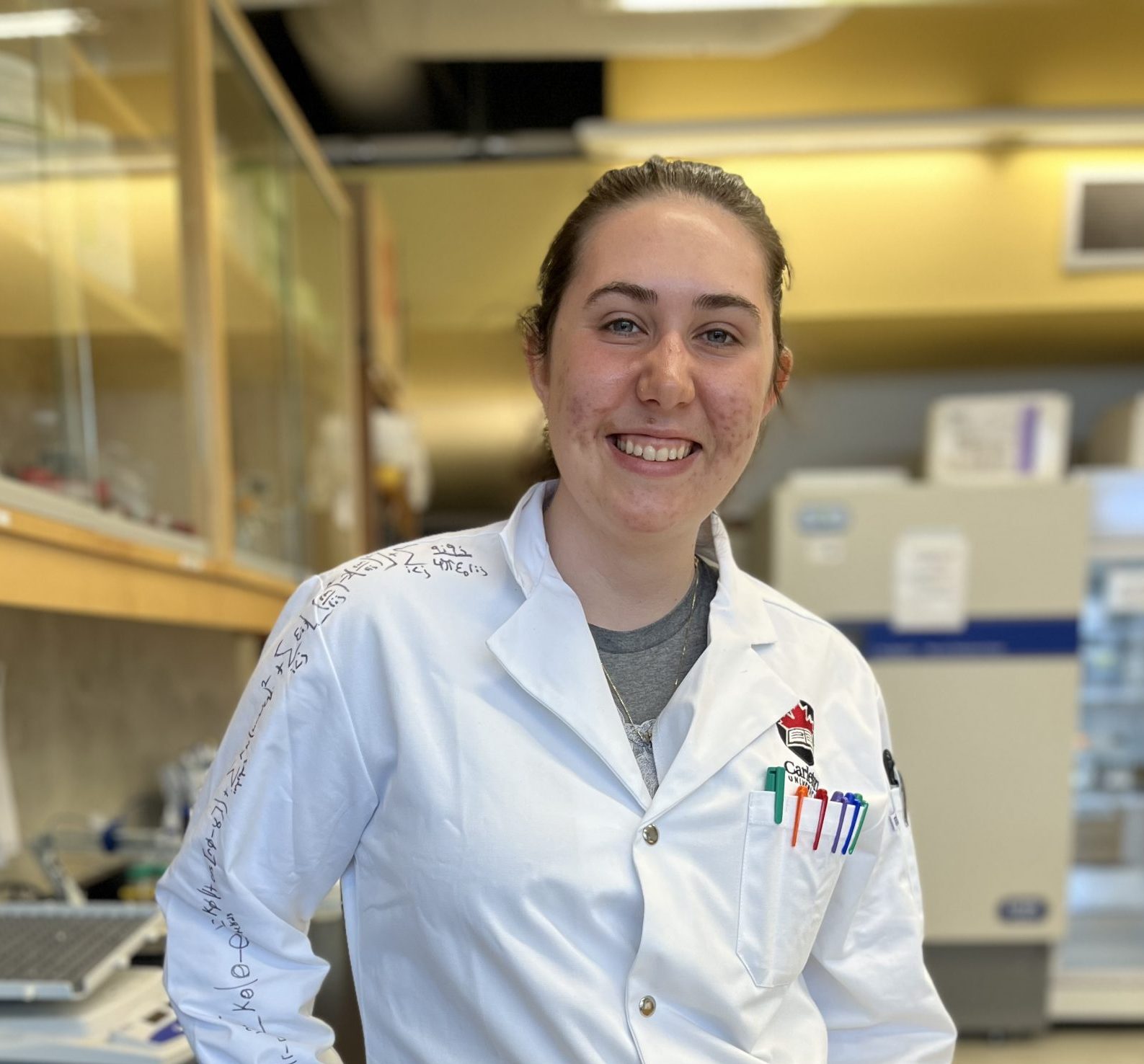The MacMillan Lab - Carleton University

The MacMillan Lab at Carleton University is an integrative and comparative physiology research group. More specifically, the team’s members study how and why different variables in an insect’s environment, like temperature, toxins, or diet, influence individual performance and survival, and how differences intolerance to these stressors among individuals, populations, and species arise.
Dr. Heath MacMillan is an Associate Professor in the Department of Biology and Institute of Biochemistry. His work on mountain pine beetles is focused on linking our physiological understanding of winter and spring beetle survival and performance with its underlying genetic roots. Heath has worked for 15 years on the physiological and molecular mechanisms that cause insects to become injured at low temperatures. He holds several ongoing grants with government agencies and industry partners, all of which relate to uncovering how factors that impact insect population growth and persistence impact our lives through our food, diseases, or forestry.
Members of The MacMillan Lab are integrated into multiple research activities. The group works closely with other members of the TRIA-FoR team, including Dr. Maya Evenden and her research group at the University of Alberta, and Amanda Roe at the Canadian Forest Service. A portion of the group (Andersen and Dean) are focused on understanding whether and how physiological collapse of ion (salt) balance occurs in beetles during overwintering, and what gene expression markers best predict beetle mortality over winter. Through this work they are building conceptual models to explain why beetles die or thrive in particular environments. Another part of the group(Haider and Fudlosid) is focused on the energetic costs of overwintering, the role of diapause, and use of energy reserves in overwintering beetles. This team is working closely with the Lewis Lab at The University of Victoria to generate predictive models of beetle energy use and allocation that can help predict beetle population dynamics and spread into new environments.

Fouzia Haider is a postdoctoral fellow in the MacMillan Research Group at Carleton University in the Department of Department of Biology and Institute of Biochemistry. She is an eco-physiologist with an interest in bioenergetics and mitochondrial physiology. She focuses on the bioenergetics of overwintering insects, especially Mountain Pine Beetles and Emerald Ash Borer. In her project, she aims to investigate the bioenergetics-mediated effects of overwintering and the underlying mechanisms in these insects. She is also interested in understanding the effect of overwintering on the mitochondrial physiology of these insects. Fouzia completed her doctoral study at University of Rostock, Germany, where she studied the effects of multiple environmental and anthropogenic stressors (such as salinity, hypoxia-reoxygenation, pollutants, and mechanical disturbance) on the bioenergetics of marine invertebrates.

Mads Andersen is a postdoctoral fellow in the MacMillan Research Group at Carleton University in the of Department of Biology and Institute of Biochemistry. He is a comparative physiologist with a broad interest in animal ecophysiology and integrative biology; his research aims to understand the ionoregulatory mechanisms that underlie variation in insect cold tolerance. His current work focuses on understanding the ion- and osmoregulatory adaptations that grant mountain pine beetles their impressive ability to survive the frigid Canadian winters, where temperature often reaches below -30°C, without freezing. Mads completed his PhD at Aarhus University in Denmark where he studied the neuromuscular and renal aspects of cold tolerance physiology in locust and fruit fly model systems. Before his current position, he completed a postdoctoral position at Carleton University, Canada, where he investigated the ionoregulatory mechanisms of central nervous system function and cold-induced dysfunction.

Serita Fudlosid, a PhD student in Biology at Carleton University and a member of MacMillan Research Group. She is interested in how pine beetles adjust their metabolic rate to conserve energy throughout the winter, and whether beetles in northern climates undergo diapause. Diapause is a state of dormancy, like hibernation, in which development is halted in anticipation of adverse conditions. Serita as extensive expertise studying the impacts of stress on insect survival, and previously studied how microplastics impact growth and development in crickets.

Rebecca Dean is a PhD student in Biochemistry at Carleton University and a member of MacMillan Research Group. Rebecca research use selectrophysiology and transcriptomics techniques to better understand what molecular mechanisms are responsible for the maintenance or loss of ion balance in overwintering beetles. She has previous experience in ion channel structure and function and completed her MSc at uOttawa studying nicotinic acetylcholine receptors.
